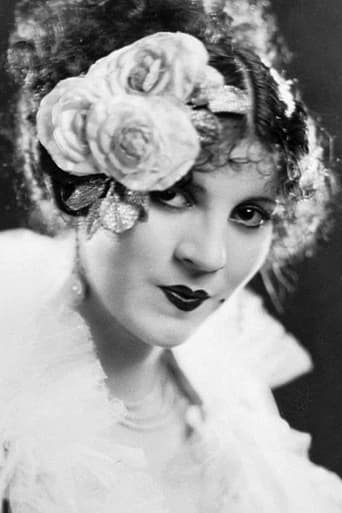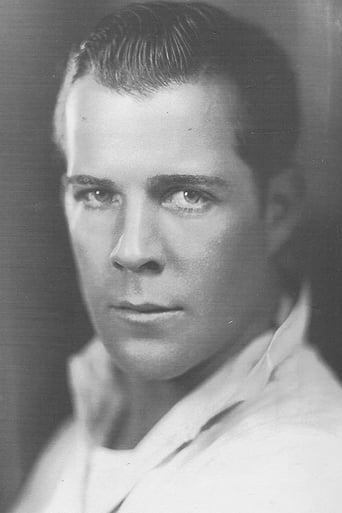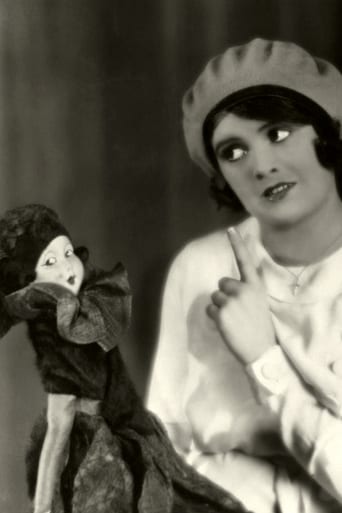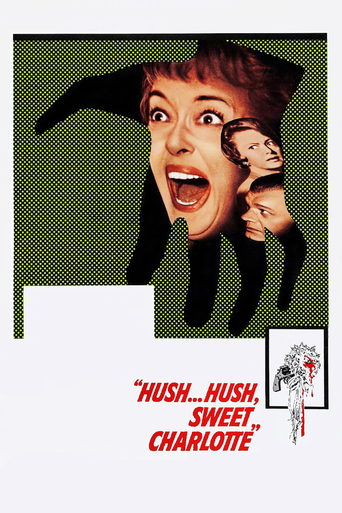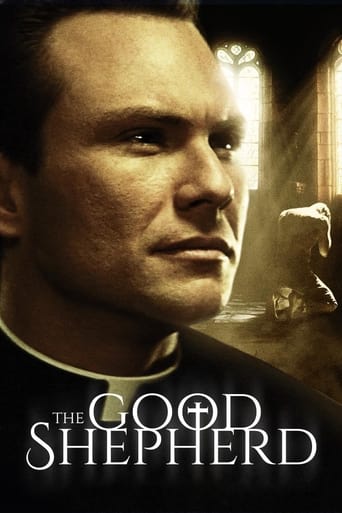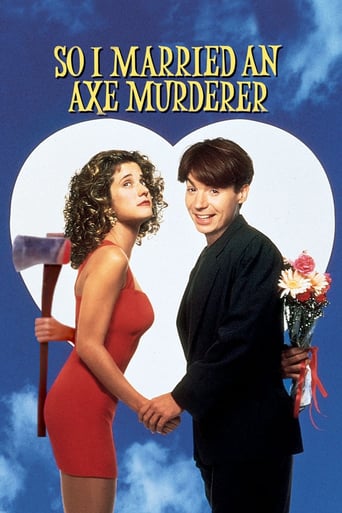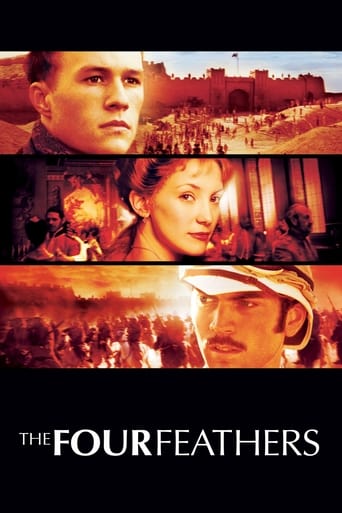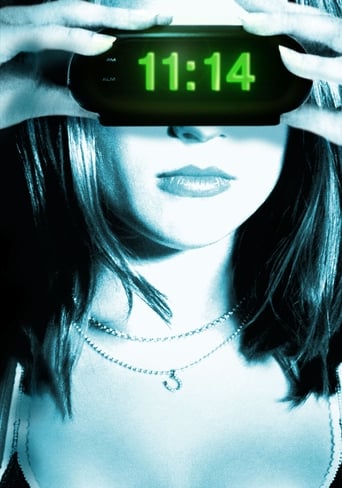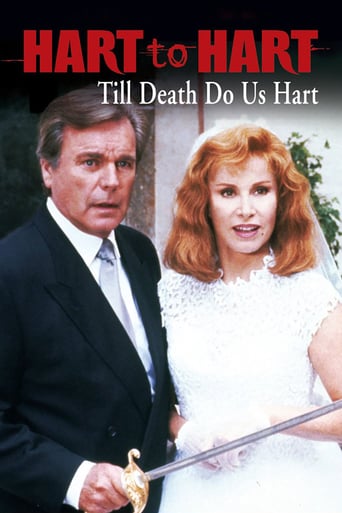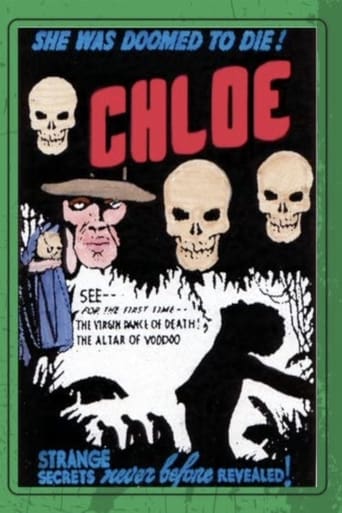

Chloe, Love Is Calling You (1934)
A black voodoo priestess comes out of the Louisians swamps to take revenge on the white plantation owner she believes killed her husband. The old conjure woman Mandy returns with her daughter Chloe to their bayou home after fifteen years. Chloe was too young to remember much about the bayou, but once Mandy had been a famous voodoo priestess in these parts. But after the whites lynched her husband Sam, she took her little girl & moved away into the Everglades. She seems to have gone a little mad in the intervening years & has returned swearing a belated vengeance against the murdering white folks.
Watch Trailer
Cast
Similar titles
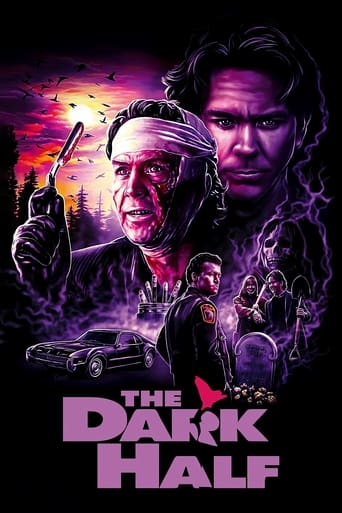
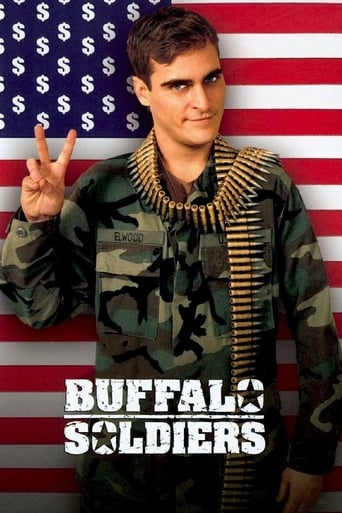
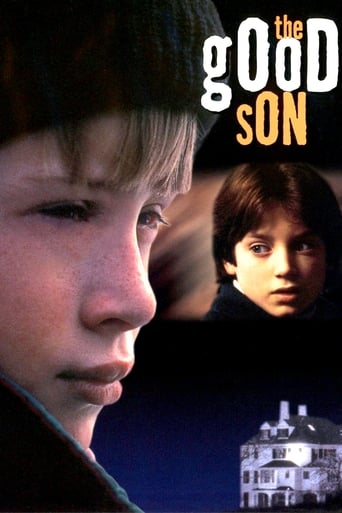
Reviews
I love this movie so much
Truly Dreadful Film
Absolutely brilliant
By the time the dramatic fireworks start popping off, each one feels earned.
Poor Georgette Harvey, the singer and actress who played the supporting role of Maria in both the original "Porgy" and its musical version, "Porgy and Bess". She made only a handful of films which document her acting on screen, unlike her stage work which is lost forever. In this way below Z grade exploitation film, she plays an evil mammy obsessed with revenge, directed to overact and thus be preserved as long as this film survives as a representation of one of the most sinister of black stereotypes. Coming off feisty but kindly in the first reel, she quickly turns, taking the light skinned young woman (Olive Borden) she claims to be her daughter back to her home to avenge the death of her father whom she claims was Borden's father. Of course, she's got all the facts wrong, and looks on with sinister intent as Borden falls in love with the white Reed Howes who works for wealthy plantation owner Francis Joyner whom Harvey blames for lynching her dead husband. The revenge includes the use of black magic, aka "voodoo", and that leads to a ceremony where Joyner's niece (Molly O'Day) is kidnapped and prepped to be a sacrifice.I give this more than a "bomb" rating simply because it made me laugh (even though I felt guilty about laughing) at how ridiculous the whole story it was. I am way beyond judging films for long gone viewpoints of blacks and other minorities in films, even though this is obviously considered way beyond offensive today. I consider this a truly lousy film in the sense that the dialog is outlandish, the plot contrived, and any realistic motivations guiding the characters completely absent. Borden and O'Day, completely forgotten today, were once major young ingenues in early talkies, and other than one scene where O'Day makes her concerns known about welcoming Borden into the family known to her uncle, there is really no dynamic for intrigue concerning their characters. There's really a lack of a showdown between Harvey and Joyner, only the slightest resolution of their conflict, and never believable. Some stereotypical "Uncle Tom" type characters try to lighten down the presentation of blacks as evil devil worshipers, but even their patronizing behavior towards Joyner (pretty much made out to be almost saintly) is a bit disconcerting as well. This is the type of film I would consider like the presentation of "Glen or Glenda" as seen by a Paramount executive in "Ed Wood": the type of a film made and sent to someone in the hierarchy seemingly as a joke.
Director: MARSHALL NEILAN. (No writers credited). Film editors: Helene Turner, Joseph Josephson. Photography: Mack Stengler. Music composed by George Henninger, arranged by Erno Rapee. Art director: Robert Stevens. Assistant director: Jack Chapin. Producer: J. D. Trop. Produced at Sun Haven Studios, distributed by Pinnacle Productions. Not copyrighted 1934, no New York opening, no recorded release dates or length.SYNOPSIS: An old voodoo woman returns to a bayou plantation to exact vengeance on the owner she alleges killed her husband fifteen years before. She is accompanied by a young half-caste, Jim, and her 18- year-old daughter, Chloe, who falls in love with the plantation's overseer. Both her "mother" and her potential suitor, Jim, strongly object to this alliance. Jim is so madly in love with Chloe, he battles a crocodile, a corrupt turpentine worker and a voodoo gang on her behalf. On the other hand, "mother" is so vengeful, she has Chloe abducted and bound on the voodoo altar for a human sacrifice.NOTES: A remarkably rare film, "Chloe" is not listed at all in the main volumes of The Motion Picture Guide, nor even in the comprehensive title listings of The Film Daily Yearbook. Nor does the movie appear in any of the filmographies of the players or technicians, but one: Erno Rapee. Final film of silent star, Olive Borden, who died in 1947 (at the early age of 41). First film of Philip Ober. COMMENT: It's odd that such a well-produced movie received such obviously limited distribution. Marshall "Mickey" Neilan was one of the top ten directors of the 1920s. Unlike many of his colleagues, he seems reasonably at home in sound. The only items that date the film in fact are Olive Borden's slightly too expressive playing of the title role (and she has plenty of excuses as she faces up to more terrifying experiences in an hour than most movie heroines cover in a lifetime) and the beautiful green stock on which the film is printed. (What a blow that sepia was the only tone that survived into the 1940s. I love green and blue equally well, I remember Fox's Kidnapped was originally shown in 1938 on green stock). Neilan's direction of the actors is not only very capable, his pacing is A-1, his eye for pictorial effects marvelous. I don't like to single out one or two players from such an able cast, but Philip Ober is especially charismatic as the daring Jim (his fight with the croc puts Johnny Weissmuller to shame]), whilst Reed Howes (make sure you see "The Dawn Rider") seems one of the most personable and under-rated leading men in pictures.Neilan hasn't made the usual "independent" mistake of economizing on music. If anything, some would object that there's too much background music. Not a single second in the entire picture is silent. But I loved it. And as for Mack Stengler's superlative cinematography... With its fascinating locations and unstinting effects, powerful plotting and characterizations, Chloe is a "B" gem.
A black voodoo priestess comes out of the Louisiana swamps to take revenge on the white plantation owner she believes killed her husband.This was produced by some small independent company called Pinnacle. It's a production company that distributed a handful of these plantation movies in the 20s and 30s. Some other reviewer here who obviously has an ax to grind, claims the black actors are played by white people. He probably thinks the Amos & Andy TV show featured white actors in blackface too. To be fair, there are two characters who are supposed to be black but are white. The title character, Chloe is supposed to be of mixed race and she is played by a famous silent film star. This is her last picture. Her star had dimmed and she wound up first joining the army (WACS) after this film and years later was found scrubbing floors for a living. In 1947, at the age of 40, she died of a "stomach ailment" at the Sunshine Mission - a home for destitute women on Los Angeles' Skid Row.One of her two love interests is white too, playing a black man.If you really examine the film, the white characters are all stereotypes -- rich, sauntering around in white suits drinking frilly drinks talking about their deals. While a few others are working class with hillbilly accents. The black characters are largely silent and working plantation. Except for the voodoo priestess who has a fair amount of dialog. This women was up for the role of Mammy in Gone with the Wind.What I'm saying is this: the film is far more complicated than just a knee jerk response of saying all the blacks are stereotypes. Everybody in this movie is a stereo type of some sort. And casting a white actress (probably because she was a real star at one time, hence an audience draw) would make it hard back then to cast a true black man as a romantic interest. Conversely, how could they cast a black actress with a white love interest in 1934?To a degree you can almost make the case that this movie is an allegory for the unfairness of race relations. In today's world of political correctness I suppose few are willing to look beyond a kool-aide drinking response to the content of the movie.Chloe and white Reed fall in love because of what's inside, not because of race or wealth or anything else.So is it a good movie? To be honest, the available prints are bad. The focus is off and the sound is poor, so it's a wee bit difficult to follow the story. At some point we find out that Chloe is actually the colonel's lost daughter who disappeared at birth. But the Colonel welcomes her with open arms, and that's likely not to happen if she was half black in those times.The women in the film are the ones to question whether or not Chloe is really the colonel's daughter, saying "she's so dark." Again a comment on racist mindsets and small minded people.I found the movie to be very watchable despite to poor print quality. I think it deserves a new look, perhaps with a complete print. The DVD prints have 8 minutes cut out of them and one wonders what's in those 8 minutes! Some reviewers have said it's typical that the white man comes out on top in this movie, but the real moral of the movie is that love comes out on top.If you have an open mind and are sick of people with an agenda, take a look at this movie. It's not a great film, but it's an interesting curio piece that probably deserves to be restored.
This movie is part of a double-feature of dreck from Alpha Video. And, like most of Alpha's DVDs, the picture and sound quality is terrible...and there is no captioning of any type. The other film included is "The Devil's Daughter" and both films have the distinction of being in the Bottom 10 films in ratings from the 1930s! Imagine...both on the same DVD!! Can any human being survive seeing this much crappiness at one time?! Well, I am living proof that you can...but don't try this at home (at least until you'd got the okay from your doctor)! Unlike "The Devil's Daughter" (which had an all-black cast), the cast for "Chloe" has a mixed cast--something very unusual for the time. I am not sure if the film was intended for black theaters (this was during the pre-integration period where in most locales blacks and whites went to separate and definitely not equal theaters) or for widespread distribution. Unfortunately, I couldn't find any information about the company that made this film, Pinnacle Productions.The main character of the film is a woman of supposed mixed race, Chloe. Who exactly her mother has been a mystery and she was found and raised by a black woman in the swamp. Frankly, the story is pretty confusing (parts appear to be missing and the DVD is almost 10 minutes shorter than the running time listed on IMDb) but the main gist of the story is that Chloe, despite being raised by and with black people, really, really wants to be 100% white. At the same time, the woman who raised her plans on using Chloe to exact revenge against the Colonel--a man she blames for the lynching of a family member. By the end, the Colonel claims Chloe is his long lost daughter and the woman that raised her denies it. All this is followed by a silly voodoo scene with lots of ignorant black folks dancing about and acting like stereotypes as they are about to sacrifice Chloe (how did it ever get to this scene from the last?!?!). She is saved and then learns the happy news that she is, in fact, not really one bit black and her foster mother had lied about this! And this, apparently, is supposed to be a happy ending! The bottom line is that you've got a muddled story that manages to be boring, confusing AND racist! This is quite the feat. Combined with bad acting, poor direction and the usual horrible print from Alpha Video, I can't see why anyone would want to see it--especially since it's not even good as a 'bad movie'--though it is pretty funny to watch Chloe badly overact without even saying anything at the 48 minute mark!This DVD deserves to be the recipient of some sort of animal cruelty award, as "The Devil's Daughter" features a real cock fight and in "Chloe" you get to see a guy kill a poor snake! Sure it was a rattlesnake, but to kill it for the audience's pleasure seems pretty nasty. Plus there was no point to this senseless act...just the pure joy of killing one of God's creatures.
